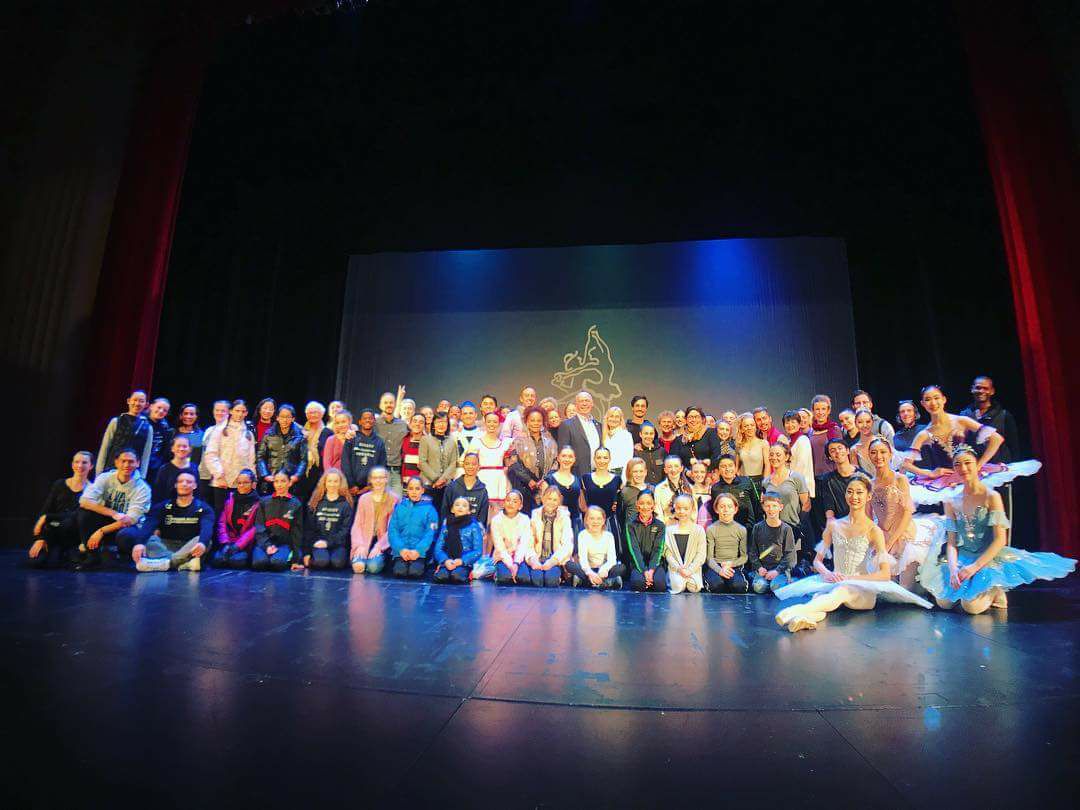Rebecca traveled from the U.K. to Missoula to perform in the event that focuses on dance as a cultural phenomenon where dancers are diplomats. Throughout the four-day event, dancers participate in activities that center on using dance to advocate for human rights, justice and global peace.
As Rebecca walked past the studio on Friday, several dancers waved at her through a window.
“I’ve felt so incredibly welcomed here,” Rebecca said. “On my first day, I asked where I could get some Yorkshire Tea and someone went out and bought a bunch and brought it back.”
Rebecca had only a few days to learn a 10-minute choreographed ballet routine which she will perform at the event’s gala. She’ll also speak about her experience as an older, trans dancer at a diplomacy conference.
Rebecca said she always wanted to be a ballerina. She wanted to wear tutus, dance female roles and glide across the stage in front of an audience.
That dream was put on hold when she struggled to find a teacher who would accept her as a gender dysphoric boy. At 16, prior to transitioning, Rebecca thought she found a teacher who could help her fulfill her dream to dance. However, they learned of Rebecca’s gender dysphoria and told her that they couldn’t teach her anymore.
The experience left Rebecca heartbroken and sent her on a path of trying to act like a boy. She worked as a race car driver and settled in a job in IT, but she still wanted to dance. Rebecca said that she’s faced many challenges not only as a trans dancer, but also as an older dancer.
Rebecca lived in various parts of the U.K. and with each city she moved to, she would thumb through a phone book and contact dance studios to try to find someone who would teach her.
It wasn’t until she was in her 30s that she finally found a studio she could call home. Lynne Reucroft-Croome, a teacher at the Lynton Academy of Dance where Rebecca trains, decided to take Rebecca on.
She started taking one to five classes a week as she continued transitioning.
In 2013 the Royal Academy of Dance changed its policy that only biologically born female dancers could take its female courses, which allowed Rebecca to take an exam, which evaluates dancers’ abilities to push themselves mentally, physically and technically.
Since passing the exam, Rebecca has continued to train although she’s still a relatively new performer. Her first performance was in February 2018 for her ballet school’s show.
“When the music starts, that feeling is indescribable,” Rebecca said. “The lights go on, the music starts, your body takes over. When it was over, I burst into tears.”
Charlene Campbell Carey, the president and executive producer of Ballet Beyond Borders, first invited Rebecca to perform a couple of years ago, shortly after Rebecca transitioned in 2016.
Rebecca hesitated at first but finally agreed to perform in this year’s production as her first performance abroad.
She said she was nervous about the challenges traveling posed, such as questioning which bathroom to use or how TSA agents would act around her.
Since she’s been in Missoula, Rebecca said she’s felt welcomed. She pulled up a photo of some graffiti that she stumbled across while walking along the Clark Fork River between rehearsals that advocated for trans rights.
“Dance saved me,” Rebecca said. “If people see me dance and that encourages just one other trans kid, it’s worth it.”
